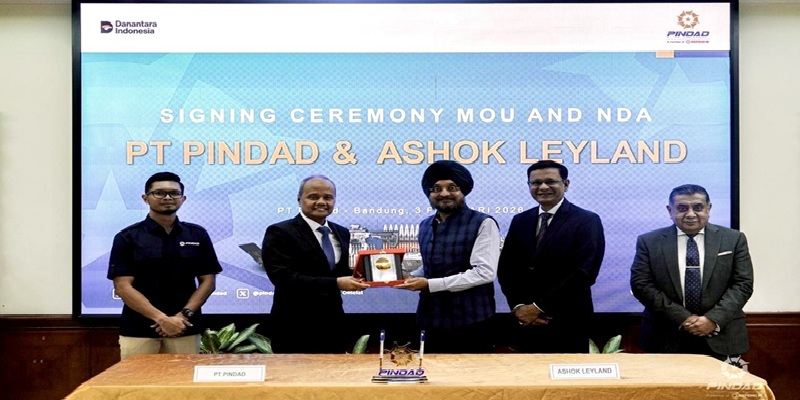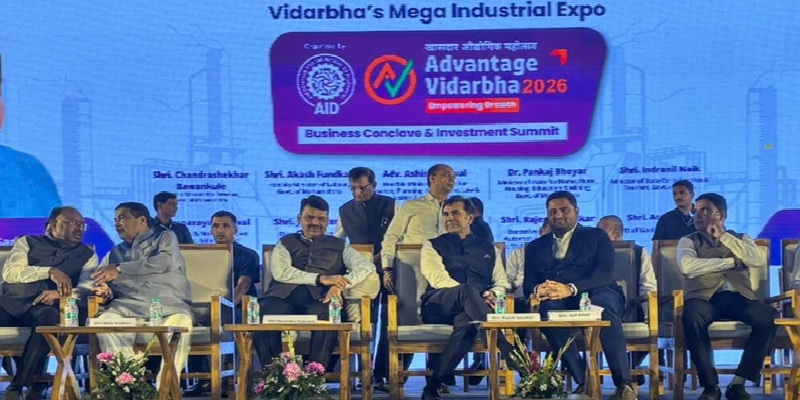Schedule a Call Back
“Pepperl+Fuchs enhances efficiency in intralogistics”
 Interviews
Interviews- Jun 24,24

Pepperl+Fuchs' factory automation division specialises in cutting-edge
sensor technologies and Industry 4.0 solutions, supporting industries worldwide
with enhanced automation and efficiency. In this interview, Aman Monga, General Manager - Sales, Pepperl+Fuchs
Factory Automation Pvt Ltd, delves into challenges faced by manufacturing
companies and how Pepperl+Fuchs is helping them navigate through these hurdles to improve their
efficiency and productivity.
How is Pepperl-Fuchs helping its industrial customers?
Pepperl+Fuchs' factory automation division helps industries achieve
higher levels of automation, efficiency, reliability, and addresses the complex
demands of modern industrial environments.
We are present in India as a 100-per cent sales subsidiary of
Pepperl+Fuchs SE which is a German multinational. The company has two divisions
factory automation and process automation with its Indian headquarters in
Gurgaon and Bangalore, respectively. Our manufacturing facilities are located
in different parts of the globe and manufacture products for both the
divisions.
Our product portfolio consists of inductive, photoelectric,
capacitive, magnetic, and ultrasonic sensors. Additionally, we offer powerful
components such as rotary encoders, positioning and identification
systems (RFID, Data Matrix, Barcode), AS-Interface. Industrial vision
systems and vision sensors are the latest additions in product range. We,
in India, offer both pre and post sales services and solutions to our
customers.
We are the ideal partner for a wide variety of
industries in the Indian market. These include industries like automotive,
material handling, packaging, print and paper, steel, metal, textile, dairy,
doors, gates and elevator construction, process equipment, mobile equipment,
and renewable energy.
What are key challenges before industries today? How is your company
helping them solve of these challenges?
The manufacturing industries face several key challenges today. Some of
them are:
- Adoption of advanced technologies: Integrating technologies such as IoT, AI,
and robotics into existing systems are complex and costly. Many companies
struggle with the initial investment and the skills required to implement
and manage these technologies?.
- Talent acquisition: Finding skilled workers is becoming challenging day by day. There
is a growing need for training and development programs to equip the
workforce with the necessary skills.?
- Inflation and cost pressures: Rising costs for raw materials, energy, and transportation add
financial pressure on manufacturing and logistics operations. Managing
these costs while maintaining competitive pricing is a significant
challenge?.
- Stringent regulations: Compliance with international quality standards and regulations
requires continuous monitoring and adaptation of processes. This can be
resource-intensive and complex, particularly for smaller companies.
- Market fluctuations: Economic and political instability and fluctuating market demands
impact production planning and financial stability. Companies need to plan
well in advance.
We, as a company, try to address key challenges in the manufacturing
industries through various innovative solutions and technologies:
- Real-time data and monitoring: Pepperl+Fuchs’ advanced sensor technologies
and RFID systems enable real-time tracking and monitoring of goods
throughout the supply chain. This improves visibility, allowing companies
to quickly respond to disruptions and optimize inventory management
- Automated systems: By providing automation solutions such as Automated Guided
Vehicles (AGVs) and robotic systems, Pepperl+Fuchs helps reduce dependency
on manual labour and enhances the efficiency and reliability of logistics
operations
- Industry 4.0 solutions: We offer a range of Industry 4.0 technologies, including IoT
devices, industrial networking products, and smart sensors. These
solutions facilitate seamless integration and communication between
machines, improving operational efficiency and enabling predictive
maintenance.
- Training and support: As a corporate responsibility, we provide extensive training
programs and technical support to the industry to understand and
effectively use available advanced technologies. This helps bridge the
skills gap and ensures that the workforce is proficient in handling new
systems.
- Flexible and scalable solutions: Our products are designed to be flexible and
scalable, allowing businesses to quickly adjust to market fluctuations and
economic changes. This adaptability is crucial for maintaining operational
stability and competitiveness.
- Cost-effective technologies: Pepperl+Fuchs focuses on providing cost-effective automation
solutions that deliver high RoI, helping companies manage their budgets more
efficiently while still investing in necessary technological
advancements.
- Advanced quality control and quality compliances: Our machine vision systems and sensors are
used for precise quality control and inspection processes, ensuring that
product meet stringent regulatory and quality standards. This is
particularly important in industries such as automotive and food &
beverage.
By leveraging these advanced technologies and solutions, Pepperl+Fuchs
is effectively addressing some of the most pressing challenges faced by the
manufacturing industries today, driving efficiency, sustainability, and
resilience.
How is the intralogistics market in India?
The intralogistics market in India is experiencing significant growth
and is expected to grow robustly, with a projected CAGR of 14.93 per cent from
2024 to 2032. It is primarily driven by the expanding e-commerce sector and
fuelled by the rising adoption of automation technologies.
There is a strong focus on integrating advanced technologies such as automated
storage and retrieval systems, industrial and mobile robots, conveyor systems,
and sortation systems. These technologies help streamline operations, minimise
manual errors, and enhance overall productivity.?
Pepperl+Fuchs is contributing to the intralogistics industry through a
variety of advanced technologies and solutions that enhance automation,
efficiency, and safety. Here are some key ways in which Pepperl+Fuchs is
helping the industry:
·
Sensors for material handling: Sensors for material handling are crucial for
object detection, position monitoring, and distance measurement within
warehouses. They facilitate efficient material handling and inventory
management by ensuring precise detection and tracking of goods.
·
Automated guided vehicles (AGVs): Pepperl+Fuchs offers critical components
for AGVs, such as advanced navigation sensors and safety systems. These
components ensure the safe and efficient operation of AGVs, which are
increasingly used for automated material transport within warehouses?. The innovative product offered to the
warehouse industry by Pepperl-Fuchs is 360 degree LiDAR which has been able to
solve numerous navigation applications in a warehouse.
·
Machine vision systems: Pepperl+Fuchs offer advanced machine vision
systems to perform tasks such as barcode reading (1D &2D), object
recognition, and quality inspection. These systems improve the accuracy and
speed of sorting and handling processes in warehouses, contributing to higher
efficiency and reduced error rates.
·
RFID systems: Pepperl+Fuchs' RFID technology enhances the tracking and management of
goods. RFID systems provide real-time data on the location and status of items,
enabling better inventory control and reducing errors in the supply chain?.
·
Technical expertise and support: With extensive experience in industrial
automation, we provide valuable technical support and expertise to help
customers implement and optimise their intralogistics systems effectively?.
Could you please highlight on some of your recent innovations?
Pepperl+Fuchs has introduced several innovations recently.
RFID systems: Pepperl+Fuchs has expanded its RFID portfolio with UHF RFID, which
enhances identification and tracking capabilities. These systems are essential
for automation and control in manufacturing and logistics environments.
Radar sensors: Pepperl+Fuchs has integrated multiple measuring modes into their radar
sensors, enabling precise determination of distance, direction, and speed of
objects. These sensors can operate in different modes such as ‘first object’,
‘best reflection’, and ‘fastest object’, enhancing their versatility for
applications like collision protection for AGVs and material handling.
Ultrasonic sensors: The USi-safety ultrasonic sensor system is designed for safety
applications in challenging environments. Advanced range of ultrasonic sensors
with IO-Link offers a comprehensive range of settings for flexible and easy
adjustments?.
How do you see the current status of the Indian manufacturing
sector?
The current status of the Indian manufacturing sector reflects a dynamic
and evolving landscape driven by several key factors and initiatives. This
sector has shown robust growth, with an 11.6 per cent increase in FY 2023-24.
Exports have reached record levels, indicating strong global demand for Indian
manufactured goods. The sector's value added is projected to reach $231.5
billion in 2024, highlighting its critical role in the Indian economy.?
Manufacturing sector is experiencing a paradigm shift. The government is
particularly focused on emerging sectors like semiconductor manufacturing and
renewable energy components. By 2030, India aims to position itself as a global
manufacturing hub, potentially exporting goods worth $1 trillion.
To compete with global players, Indian manufacturers are rapidly
embracing Industry 4.0 principles, incorporating advanced technologies such as
AI, robotics, AI and digitalisation to enhance efficiency and productivity.
Automation is becoming a cornerstone, with significant investments in smart
factories and digitalisation to streamline operations and reduce lead times.
What are the emerging trends in the industry?
The emerging trends in the manufacturing industry in 2024 highlight a
shift towards advanced technologies, sustainability, and workforce innovation. Here are some key trends:
Smart factories and Industry 4.0: The adoption of smart factory solutions and
Industry 4.0 technologies is accelerating. These include the integration of
IoT, AI, machine learning, and robotics to create highly automated and
interconnected manufacturing environments. Smart factories enhance operational
efficiency, reduce downtime, and improve product quality by enabling real-time
monitoring and predictive maintenance.
Product electrification and decarbonisation: The trend towards electrification of
products, especially in the automotive industry, is gaining momentum.
Manufacturers are investing in the development of electric vehicles (EVs) and
energy-efficient technologies. Decarbonization efforts include adopting cleaner
production methods and reducing the carbon footprint across the supply chain.
Digital transformation and supply chain digitalization: Manufacturers are increasingly
investing in digital tools to enhance supply chain performance and resilience.
Digital transformation initiatives include the use of blockchain for supply
chain transparency, AI for demand forecasting, and advanced analytics for
inventory management. These technologies help manufacturers respond swiftly to
market changes and disruptions.
Sustainability and green manufacturing: There is a growing focus on
sustainability and reducing the environmental impact of manufacturing
processes. Companies are adopting green manufacturing practices, such as using
renewable energy sources, minimising waste, and developing eco-friendly
products. The push for net-zero emissions is driving innovation in product
design and production techniques.
Advanced materials and additive manufacturing: The use of advanced materials, such
as composites and nanomaterials, is on the rise. Additive manufacturing (3D
printing) is becoming more prevalent, enabling manufacturers to produce complex
designs with greater precision and less material waste. This technology is
particularly beneficial for prototyping and small-batch production
What are your growth plans?
Pepperl+Fuchs is well-positioned to capitalise on emerging market
opportunities, and has outlined several growth plans and initiatives to drive
its future development. We are investing heavily in technologies related to
Industry 4.0 and the Internet of Things (IoT). These initiatives include
developing cloud-based data collection applications and mobile computing
devices, which are essential for the next phase of industrial automation?.
We have also formed strategic partnerships to enhance technology
offerings and market reach, in collaboration with VMT for advance vision
solutions to automotive and allied industries.? Lastly, we have
successfully solved a diverse range of applications and are continuously developing new
technologies to make processes more reliable and efficient in material
handling area.
Related Stories
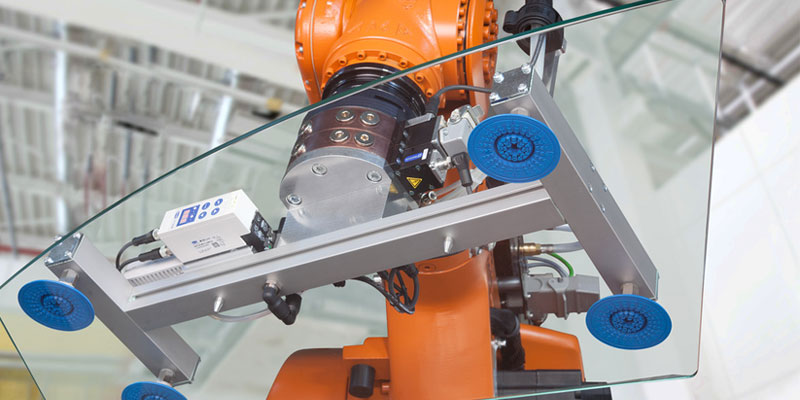
Air-Saving Vacuum Ejectors Cut Energy Use by Up to 90% in Automotive Plants
Air-saving vacuum ejectors are helping Indian automotive manufacturers reduce energy costs, cut carbon emissions and achieve rapid ROI while ensuring reliable, zero-defect production, shares Rajesh ..
Read more
India is at a pivotal ‘Make in India’ inflection point: Manoj Patil
In this interview, Manoj Patil, Promoter and Managing Director, Patil Automation Limited, outlines its growth journey, capacity expansion, acquisitions, design-led approach, market challenges, and t..
Read more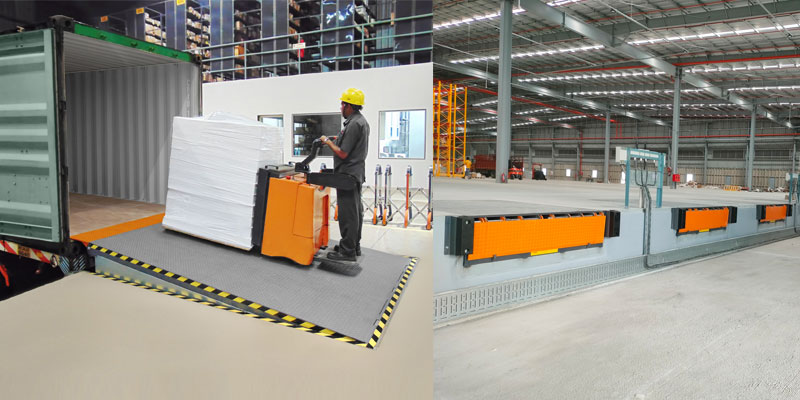
Gandhi Automations Redefines Loading Bay Safety with Dock Levelers
Gandhi Automations strengthens loading bay efficiency with EN-compliant dock leveler solutions.
Read moreRelated Products
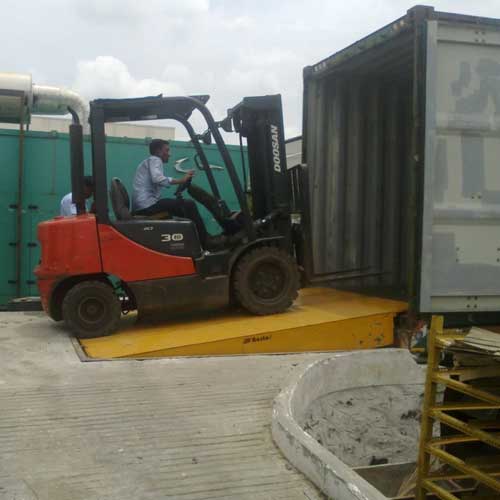
Dock Leveller
Besto Material Handling Equipments offers a wide range of dock leveller.
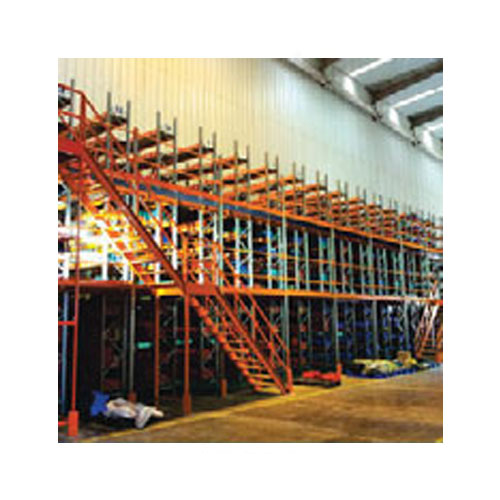
Multi Tire
SCI Storage Solution offers a wide range of multi tire.
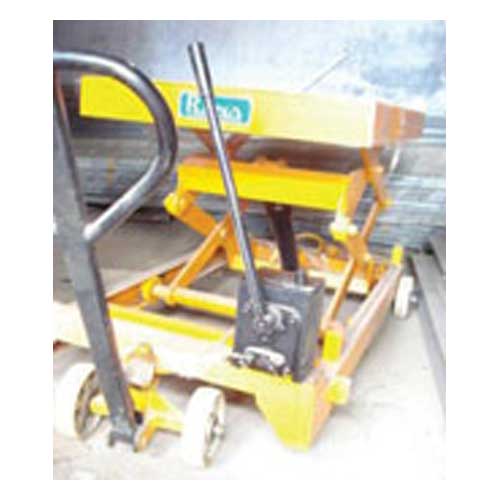
Industrial Lifting Equipment
Rana Material Handling Equipments Pvt Ltd offers a wide
range of industrial lifting equipment.






